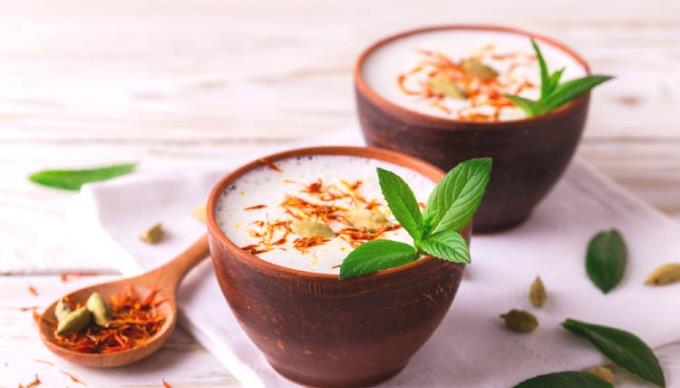For expectant mothers, nutrition is the key to healthy baby development. However, there is a fact that few people notice that the choice of food consumption also contributes to a child's complexion. The question is, what should a pregnant mother eat to have a white child?
The truth is that any parent wants their children to be born white and healthy. Therefore, the secrets of what to eat for white children never cool down. Although the color of young skin is believed by many to be more genetically dependent, there are certain foods that help improve children's skin.
Therefore, if you want your baby to be born with white skin, red lips, pregnant mothers need to review their diet and add to the menu the dishes that aFamilyToday Health suggests below!
Factors determining infant skin tone

Theoretically, the child's skin color will be completely dependent on genetic factors. By the time after birth, most babies' skin will appear pale purple. The reason is that the baby's circulatory system still needs time to be able to circulate enough oxygen to the entire body. When the needed oxygen is reached, the baby's skin will now turn more rosy.
The above is true but not enough. A healthy diet , especially foods that are beneficial for the formation of skin pigmentation, also has a significant effect on the color of the skin.
What to eat white children? Please refer to the following list immediately
People often tell each other that, drinking coconut water gives birth to a white child or eating black foods, the baby will have dark skin. However, most modern mothers today do not believe this much.
As modern science has evolved, the application of folk tips is often selectively selected. Here is a list of foods that help your baby have rosy white skin:
1. Add folate-rich foods
Folic acid or folate is an extremely important nutrient for the formation of brain cells in your baby. According to studies, folic acid should be taken 4 weeks before pregnancy and eight weeks after birth, significantly reducing the risk of having an autistic baby.
In addition, folate-rich foods such as spinach, citrus fruits, lentils and breakfast cereals are also believed to improve the skin color of babies after birth.
2. Milk saffron (saffron pistil)

Some pregnant women still often use saffron pistil during their pregnancy. Saffron is also on the list of what to eat for white children that mothers care about. The reason is that its effects can help improve young skin even in the womb.
However, when using saffron pistil , pregnant women note should not overdo it to avoid heat generation and uterine contractions that can lead to miscarriage. This type of food is recommended in the third trimester .
3. Butter ghee
Ghee is a processed butter that contains less dairy protein than regular butter. Ghee is also commonly used as a substitute for butter in cooking. In particular, this food is also good for people who are sensitive to lactose and casein because it contains very little of these two ingredients.
According to experts, pregnant women add ghee to their diet with less pain during childbirth. It also has a lightening effect on the skin.
4. What to eat for white children? Almonds are a great suggestion
Almonds are always recommended during pregnancy as it is high in protein, vitamin E, calcium, magnesium and even fiber. Protein is very helpful for the development of the baby, while calcium and magnesium are essential for bone development.
For those who are wondering what to eat for their white children, almonds will be the right choice. Because it also works to lighten the skin. You can use dried almonds or add them to salads or drink almond milk .
5. Grape juice

Grape juice is rich in alpha hydroxy acid (AHA), which is known to help babies have fair skin. Therefore, pregnant mothers can add grape juice to their menu. The advice is to just use 60ml of this juice twice a day your baby is not only white but also healthy!
6. What to eat for the white child? Don't miss fruits rich in vitamin C
If parents have dark skin, pregnant mothers need to actively eat fruits rich in vitamin C. This nutrient not only works to increase resistance but also prevent dark pigmentation of the skin. From there, the baby will have a white, pink, smooth skin.
Suggest some types of fruits such as oranges, lemons, apples, tangerines, grapes ... can make a fruit salad or make a glass of fresh juice for hot days.
7. Dill seed tea

Pregnant mothers drink cumin seed tea in the morning when they wake up not only to help reduce nausea but also help in improving baby's skin pigmentation.
8. Avocado
Close the item to eat so that the whites are butter. This fruit is quite rich in vitamins E, C, which is good for the body's collagen production.
In addition, the high fat content in avocado is also suitable for pregnant mothers to add to the menu for the last 3 months of pregnancy . Because this is the period that baby's skin begins to "inflate" to prepare for the upcoming journey of birth.
What to eat for white children? Notes for pregnant mothers

In addition to knowing what to eat for white children, pregnant mothers should understand that melanin is the pigment that helps to fight against the effects of the sun. The more sun exposure, the more melanin the skin produces and becomes darker.
Therefore, even when the baby is born pinkish white skin, but if the mother exposes her child to regular sunlight, the baby's skin is still likely to darken.
Hopefully, the above suggestions to eat for white children will help future mothers give birth to their desired skin.
















